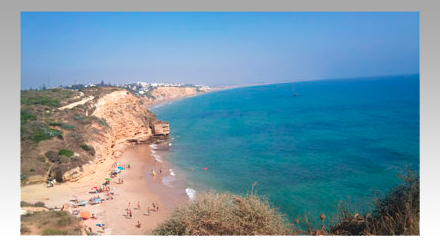El otro día Nicolas, un amigo y compañero de trabajo se quebró la cabeza con este tema. La cosa debía ser mas bien simple, en un bucle tenia que procesar una serie de datos, rellenar un formulario programaticamente y darle un drupal_execute() para que se creen una cantidad de nodos…
Eso fue de todo menos simple. Resulta que el que programó la función drupal_validate_form() se olvidó que podía caber la posibilidad de que alguien quisiera llamarlo en bucle, y no se le ocurrió mejor idea que cachear la primera validación y cortar cualquier otra dentro de un mismo request.
La solución por la que se decantó Nicolas fue la de crear una implementación propia de ciertas funciones. Antes que digan algo, recomiendo que se den una vuelta por los foros de Drupal y se convensan de la imposibilidad de aplicar una solución mejor.
De hecho esta solución es bastante buena, porque no tenes mas que poner el código en tu modulo, e invocar la versión modificada de drupal_execute().
La modificación se tuvo hacer mucho antes de llegar a drupal_validate_form() para poder tomar control sobre la misma, por lo que en esta modificación hubo que reemplazar funciones de:
drupal_execute() -> drupal_execute_no_cache()
drupal_process_form() -> drupal_process_form_no_cache()
drupal_validate_form() -> drupal_validate_form_no_cache();
los archivos modificados son estos:
/**
* @see drupal_execute
* Unica diferencia, utiliza métodos propios (_no_cache) para evitar el cacheo de validaciones
*/
function drupal_execute_no_cache($form_id, &$form_state) {
$args = func_get_args();
// Make sure $form_state is passed around by reference.
$args[1] = &$form_state;
$form = call_user_func_array('drupal_retrieve_form', $args);
$form['#post'] = $form_state['values'];
drupal_prepare_form($form_id, $form, $form_state);
drupal_process_form_no_cache($form_id, $form, $form_state);
}
/**
* @see drupal_process_form
*
* @param $form_id
* @param $form
* @param $form_state
*/
function drupal_process_form_no_cache($form_id, &$form, &$form_state) {
$form_state['values'] = array();
$form = form_builder($form_id, $form, $form_state);
// Only process the form if it is programmed or the form_id coming
// from the POST data is set and matches the current form_id.
if ((!empty($form['#programmed'])) || (!empty($form['#post']) && (isset($form['#post']['form_id']) && ($form['#post']['form_id'] == $form_id)))) {
$form_state['process_input'] = TRUE;
drupal_validate_form_no_cache($form_id, $form, $form_state);
// form_clean_id() maintains a cache of element IDs it has seen,
// so it can prevent duplicates. We want to be sure we reset that
// cache when a form is processed, so scenerios that result in
// the form being built behind the scenes and again for the
// browser don't increment all the element IDs needlessly.
form_clean_id(NULL, TRUE);
if ((!empty($form_state['submitted'])) && !form_get_errors() && empty($form_state['rebuild'])) {
$form_state['redirect'] = NULL;
form_execute_handlers('submit', $form, $form_state);
// We'll clear out the cached copies of the form and its stored data
// here, as we've finished with them. The in-memory copies are still
// here, though.
if (variable_get('cache', CACHE_DISABLED) == CACHE_DISABLED && !empty($form_state['values']['form_build_id'])) {
cache_clear_all('form_' . $form_state['values']['form_build_id'], 'cache_form');
cache_clear_all('storage_' . $form_state['values']['form_build_id'], 'cache_form');
}
// If batches were set in the submit handlers, we process them now,
// possibly ending execution. We make sure we do not react to the batch
// that is already being processed (if a batch operation performs a
// drupal_execute).
if ($batch =& batch_get() && !isset($batch['current_set'])) {
// The batch uses its own copies of $form and $form_state for
// late execution of submit handers and post-batch redirection.
$batch['form'] = $form;
$batch['form_state'] = $form_state;
$batch['progressive'] = !$form['#programmed'];
batch_process();
// Execution continues only for programmatic forms.
// For 'regular' forms, we get redirected to the batch processing
// page. Form redirection will be handled in _batch_finished(),
// after the batch is processed.
}
// If no submit handlers have populated the $form_state['storage']
// bundle, and the $form_state['rebuild'] flag has not been set,
// we're finished and should redirect to a new destination page
// if one has been set (and a fresh, unpopulated copy of the form
// if one hasn't). If the form was called by drupal_execute(),
// however, we'll skip this and let the calling function examine
// the resulting $form_state bundle itself.
if (!$form['#programmed'] && empty($form_state['rebuild']) && empty($form_state['storage'])) {
drupal_redirect_form($form, $form_state['redirect']);
}
}
}
}
/**
* @see drupal_validate_form
*
* @param $form_id
* @param $form
* @param $form_state
*/
function drupal_validate_form_no_cache($form_id, $form, &$form_state) {
// If the session token was set by drupal_prepare_form(), ensure that it
// matches the current user's session.
if (isset($form['#token'])) {
if (!drupal_valid_token($form_state['values']['form_token'], $form['#token'])) {
// Setting this error will cause the form to fail validation.
form_set_error('form_token', t('Validation error, please try again. If this error persists, please contact the site administrator.'));
}
}
_form_validate($form, $form_state, $form_id);
}
Como dije. Copienlo a su módulo y usen drupal_execute_no_cache() en lugar de drupal_execute().

![]()



